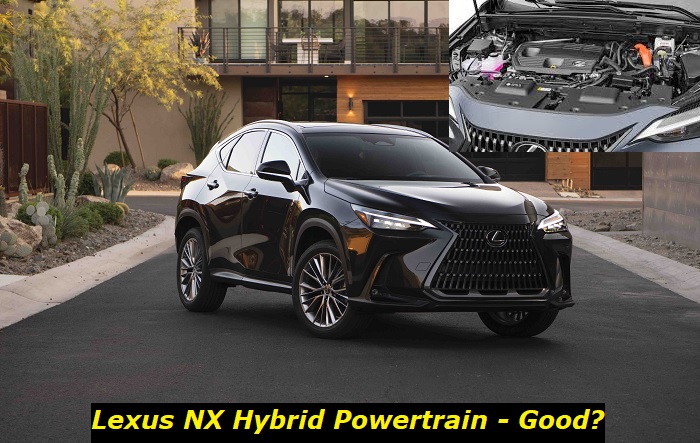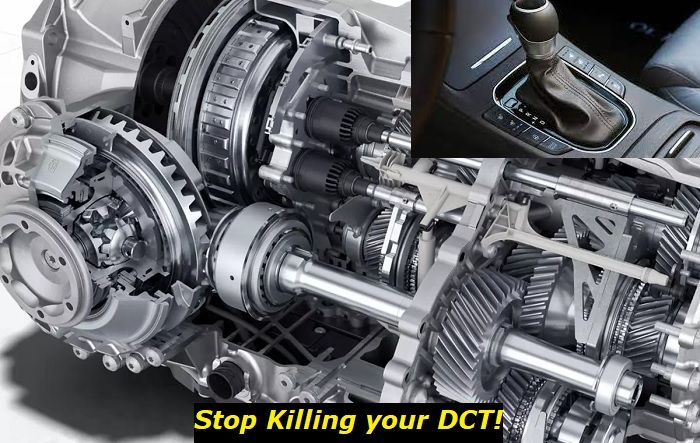The Lexus NX Hybrid models are available in two different versions - the 350h and the 450h+. While the 350h version is the standard full hybrid with a small battery pack, the 450h+ is a PHEV that you can charge and drive all-electric just like an EV. But they both are based on the same gasoline engine.
Today, I will tell you more about the Lexus NX Hybrid models and their engines to let you know about their longevity and potential problems. I will not focus on any other aspects of these wonderful cars but only on the engines, so please don't take this article as criticism of the Lexus NX. I really like the car and think this is the greatest compact luxury SUV hybrid model available.

Key features and my opinion about the engine
- Production years:2017-2024
- Average lifespan of A25A-FXS/A25B-FXS:170,000-190,000 miles
- Fuel supply type:combined injection (D4-S)
- Power range:174-189 hp
- Fuel efficiency:excellent
- Engine block material:aluminum
- Engine reliability score:medium
- The most common problems:mysterious noise from time to time, EGR leaks, other EGR problems, prospective timing chain issues.
Key facts about the NX Hybrid engine you should know
So, both hybrid powertrains available in the US now are based on the same gasoline engine - the 2.5L unit codenamed A25A-FXS/A25B-FXS. This is exactly the same engine that powers the RX Hybrid model and also about a dozen other Toyota and Lexus hybrid models all around the globe. The engine was first introduced in 2017 and we know a thing or two about it now.
The Miller-cycle engine is derived from the A25A-FKS used in non-hybrid models of Toyota and Lexus. This is quite a simple and reliable powerplant that can be considered one of the most durable hybrid units available now in the luxury-SUV market. But let's avoid jumping to conclusions.
Here are some facts about the engine:
- the 2.5L gas engine is a non-turbo unit offering 240 horsepower for the 350h and 310 hp for the 450h+ version;
- the engine offers combined injections which protects it from common direct-injection problems;
- the engine has two phasers, hydraulic lifters, its timing system is driven by a decent chain;
- both hybrid powertrains have two electric motors driving the front and the rear axle, so they are all AWD cars;
- the battery pack for the 350h is just 1.6 kWh, the battery is Li-Ion and helps run the engine in the hybrid mode, but not all-electric;
- the 450h+ version gives you the charging port to charge its 18.1-kWh battery pack and drive it like an EV;
- both versions of NX Hybrids are available with CVT - this sounds like bad news but actually, the CVT is not bad at all in Lexus cars;
- the 350h offers 41 MPG in the city and 37 MPG on highways while the 450h+ is rated at 84 MPGe and allows you to enjoy about 37 miles of EV range.
Of course, the 450h+ which is a PHEV seems like a better purchase because it's much more flexible and improves the fuel economy. But the price difference between these two models is about $15,000! The 350h now starts at approximately $43,000 while the 450h+ version will take about $58,000 from your pocket.
Also, in terms of maintenance and the cost of driving, the 450h+ is going to be much more expensive in the future. Both versions are going to be quite good in terms of the emotions they give you when driving. But the more expensive PHEV version is still better - it drives faster and has more power under your right foot to use.
How long will the NX Hybrid engine survive?
The A25A-FXS engine itself is certainly not going to be the first expensive unit that will die in this vehicle. Its estimated longevity is about 180,000 miles but I believe it can go even longer than that. Especially, in a 450h+ PHEV version where it will be resting most of the time you are driving in the city traffic.
The first concern comes from the CVT. I still think that Lexus CVTs are much better than Nissan ones, for example. Also, the eCVT that is used in Lexus NX Hybrid models is not the traditional CVT and is going to be more durable than you may think. But still, getting this unit to 200K miles without repairs might be a pretty hard task.
Also, the batteries are causing some more concerns. While the 350h battery is not that huge and hence quite affordable, you can just replace it at about 100,000 miles and drive the same distance with the new pack. But the 450h+ battery pack is huge and it will require a different approach. Approximately after 100K miles, you will notice that the all-electric range is getting much worse and the combined gas-electric mileage is also deteriorating.
You may replace the entire battery pack but this will cost you too much, so you may want to replace some sections of this battery. For this, find a good battery shop that can test and replace segments of the battery pack in your Lexus. This way, you will be able to prolong the life of the PHEV battery without investing thousands in it.
What are the potential problems with the Lexus NX Hybrid engines?
Although this is a pretty good engine and Lexus did a great job setting it up and tuning it for the best performance and efficiency, it still has some common problems that are likely to show up after the engine gets some miles on it. Please keep in mind that not all of these problems will necessarily happen with your NX Hybrid, but you just need to know about them to prevent these issues and know what to do if they happen.
Here are some common problems you should know about:
1. Battery pack issues
Surprisingly, Lexus batteries start giving up much earlier than I suggested. I found reports about battery packs failing in other (not NX) hybrid models by Toyota or Lexus at 60-80 thousand miles. Well, this is too fast!
Battery packs are expensive and they are the souls of hybrid vehicles. So, to keep driving your NX Hybrid with less gas burned, you will need to repair or replace the packs. Unfortunately, this costs a fortune and will take all that money that you could save thanks to the hybrid technology.
2. EGR valve stuck at low mileage
New technologies brought the EGR system into this engine and it's not good news for the owners of the NX Hybrid. At about 70,000 miles, the EGR valve may get quite dirty and will stuck because of all those deposits. One of the prevention methods is to have the EGR valve cleaned at 50K miles and this may double its lifespan.
One more bad thing is that replacing the EGR valve is not cheap. Given the warranty for the NX Hybrid is 4 years or just 50,000 miles, you will most likely repair this valve for your own money.
3. EGR cooler leaks
Another problem that the EGR system brings with its appearance in the A25A-FXS engine is the cooler in this valve. The cooler is known to be faulty and it may crack at any mileage. If it eventually cracks, the coolant will massively go into the combustion chamber and burn.
This will cause white smoke from the tailpipe and a quick drop in the coolant level in your vehicle. If you don't pay any attention, after some time, the gasoline engine may start overheating.
4. Injection system problems
You may say, hey Dmitry, you said that this engine has the combined injection system and no problems with the buildups! And yes, it has no carbon buildups thanks to the additional row of port injectors. But the D4-S system of fuel injection that is used in this gas engine is known to be pretty sensitive to the quality of fuel.
If you don't replace the fuel filter regularly or buy low-quality gas, the injection system will clog pretty fast and require quite an expensive cleaning.
How can you prolong the lifespan of the 2.5L Hybrid engine in the NX?
To drive this vehicle for a longer time, you will need to make sure that you follow all the maintenance guidelines from Lexus. Otherwise, the durability of the hybrid powerplant is not guaranteed.
Also, here are some specific things you should pay attention to:
- check the EGR and the EGR cooler at 50K miles and then every 10K miles to avoid problems;
- check the timing chain at 80,000 miles and then every 20,000 miles to avoid stretching;
- don't ignore engine overheating - this may lead to fatal damages;
- pay attention to any changes in the way your powerplant works, especially to gas mileage changes;
- only let professionals maintain and repair this engine.
Hybrid powertrains offered in Lexus cars are known to be pretty good and reliable but there are still several specific issues that can happen with these engines. So, keep an eye on these possible problems and make everything you can to prevent them. This will help you to drive your gorgeous Lexus NX Hybrid for a much longer time.
About the authors
The CarAraC research team is composed of seasoned auto mechanics and automotive industry professionals, including individuals with advanced degrees and certifications in their field. Our team members boast prestigious credentials, reflecting their extensive knowledge and skills. These qualifications include: IMI: Institute of the Motor Industry, ASE-Certified Master Automobile Technicians; Coventry University, Graduate of MA in Automotive Journalism; Politecnico di Torino, Italy, MS Automotive Engineering; Ss. Cyril and Methodius University in Skopje, Mechanical University in Skopje; TOC Automotive College; DHA Suffa University, Department of Mechanical Engineering






Add comment